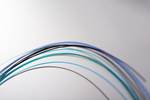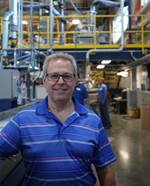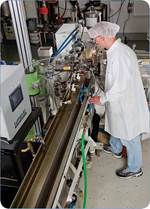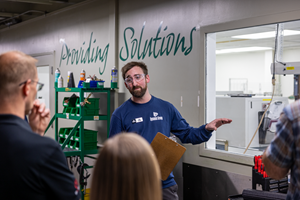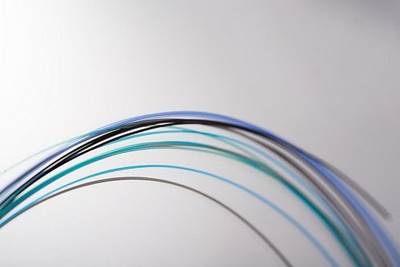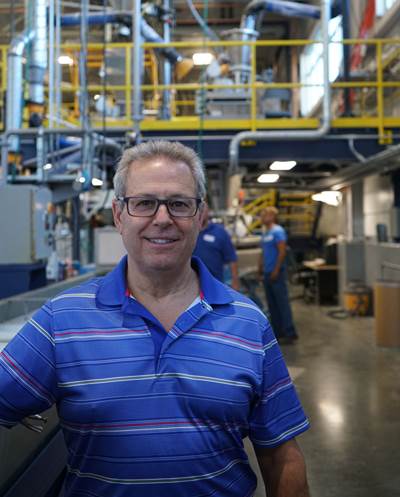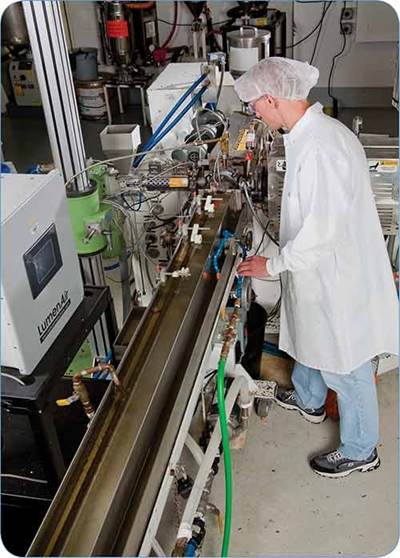While the ongoing global pandemic gave medical processors a business boost in 2020 and 2021, those who supplied catheters for elective surgeries saw their business dip. Not so for Putnam Plastics Corp., which grew by double digits last year, started an altogether new company to supply finished and packaged medical devices, and opened a new 57,000-ft2 addition to its campus in Dayville, Conn., bringing its total capacity in the Northeast Connecticut town to more than 200,000 ft2.
Putnam was founded by current CEO Jim Dandeneau in a two-bay garage in the mid-1980s. Today, Dandeneau and son Ryan, the firm’s president, lead a 400-employee enterprise that specializes in advanced extrusions and assemblies for minimally invasive medical devices. Elective surgeries may have been cancelled during the early stages of the pandemic, but Putnam “was fortunate because our overall product portfolio was not heavily weighted toward those kinds of catheters,” the younger Dandeneau says. “We had a couple of programs that maybe suffered, but on the other hand we had a couple of Covid-related programs for diagnostic applications.”
Last June, Putnam completed its expansion with space designed specifically with its medical-device partners in mind, offering additional clean manufacturing space to expand its product slate. Putnam will be adding production lines and upwards of 100 employees when fully ramped up. “We had some big programs coming through the pipeline, so we started looking for a new facility a few years ago,” Ryan Dandeneau recalls. “We looked at other locations in the southern U.S. We looked at buying a building elsewhere in Connecticut. But we concluded that for our business it makes sense for us to have everything on one campus, to have all of our engineers in one building with access to a tooling room. Within the next six to eight months, we’ll have two big programs ramping up and figure those alone will occupy 25-50% of the new space.”

Putnam Plastics CEO Jim Dandenau (left) and his son, company President Ryan, at their new 57,000-ft2 plant in Dayville, Conn. (Photo: Putnam Plastics)
Putnam will be tapping into local talent and community colleges, as well as a $2000 referral program, to fill those 100 spots. “Finding and keeping people is a concern for us, like everyone else in manufacturing,” says Jim Dandeneau. “But we provide a clean work environment and make life-saving products, which younger people generally find attractive.” The elder Dandeneau notes that Putnam will be adding staff incrementally, as some projects in the pipeline won’t reach the production phase until mid-year. “Still, the sooner we bring them onboard the better, as our training process can take up to six months.”
Putnam currently has 25 extrusion lines and about 60 extruders; the new facility allows room for nine more full production lines and will also be equipped to accommodate what Jim Dandeneau calls “softer processes,” notably secondary operations that include tipping, hole punching, laser machining/printing, insert molding and coiling. “We might move some machinery from our existing plant over to the new one, but by and large everything in the new plant will be new. Most likely we are looking at using the additional space equally for extrusion and secondary operations.”
The ability to furnish high-end, highly technical tubing all the way through finished devices such as complete catheters led last year to Putnam launching a new company called Putnam Medical. States Ryan Dandeneau, “Some in the medical-device industry just focus on tubing. Some just do secondary operations. But we do everything in one building, fully labeled and packaged, with connectors, etc.” Importantly, these are not Putnam branded devices, as that would put the company in direct competition with its customers.
CEO Dandeneau elaborates, “Many of our customers can’t do everything in house, so they farm out certain projects to us. As long as we aren’t producing our own device, we are not in a competitive situation with them. Adds Ryan Dandeneau, “Having this capability is also a nice resource for startups who have ideas for new catheter systems but not the resources to make them. We’ll do the whole thing.”
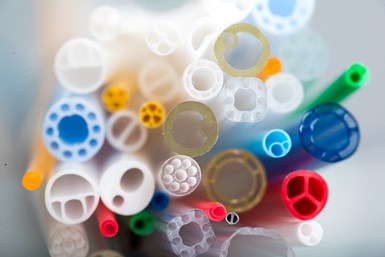
Putnam Plastics supplies medical tubing in a range of materials and lumens, some of which are furnished as part of complete catheter systems. (Photo: Putnam Plastics)
Innovation continues to be a critical component in Putnam’s strategy. “We are constantly looking a new materials and processes, and we have an advanced development group that reports directly to me and focuses just on that. Even now, we believe we are among the few, if not the only, companies that can run polyimide-lined, multi-lumen braided catheters on a continuous, reel-to-reel basis,” says Ryan Dandeneau.
Related Content
Impacts of Auto’s Switch to Sustainability
Of all the trends you can see at NPE2024, this one is BIG. Not only is the auto industry transitioning to electrification but there are concerted efforts to modify the materials used, especially polymers, for interior applications.
Read MoreMultilayer Solutions to Challenges in Blow Molding with PCR
For extrusion blow molders, challenges of price and availability of postconsumer recycled resins can be addressed with a variety of multilayer technologies, which also offer solutions to issues with color, processability, mechanical properties and chemical migration in PCR materials.
Read MoreMedical Molder, Moldmaker Embraces Continuous Improvement
True to the adjective in its name, Dynamic Group has been characterized by constant change, activity and progress over its nearly five decades as a medical molder and moldmaker.
Read MoreWhat to Look for in High-Speed Automation for Pipette Production
Automation is a must-have for molders of pipettes. Make sure your supplier provides assurances of throughput and output, manpower utilization, floor space consumption and payback period.
Read MoreRead Next
Advanced Tri-Layer Tubing for Balloon Catheters
Putnam Plastics’ proprietary extrusion process produces tri-layer tubing with improved tensile, burst and elongation properties.
Read MoreA Coronavirus Comeback Restarts Growth at Medical Compounder
A slowdown in catheter production stopped growth in its tracks last year at Foster. But business has turned around quickly this year, and the medical compounder was prepared for the rebound.
Read MoreOn Site: Growth Through Innovation in Medical Tubing
By focusing on high-tech, quick-turnaround, turnkey solutions, Putnam Plastics has grown into a leader in the field of medical extrusion.
Read More


